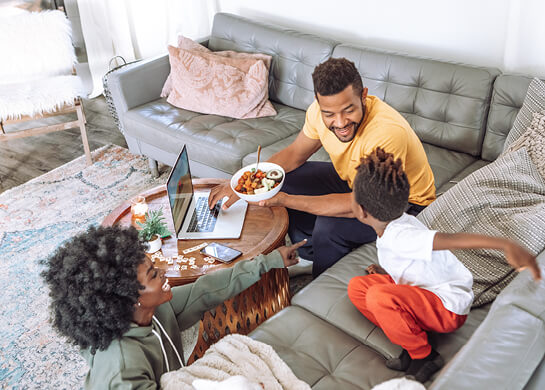Whether you’re a first home buyer or an investor with a large portfolio, buying a house requires some important research.
Compare other houses
Start by researching the purchase price of recently sold properties in the area you’re interested in. Not only will this give you an idea of how much you should be saving, it'll also allow you to compare whether the house you want to buy is too expensive or if you’re onto a bargain when the time comes.
Look out for homes with similar characteristics.
- Are you looking for a house, unit or townhouse?
- Do you need three bedrooms?
- How many bathrooms?
- Also compare similar land sizes as this plays a major part in the purchase price.
Ask questions
When attending open inspections, take the time to chat to the real estate agent and find out a bit more about the property for sale.
Asking certain questions might give you bargaining power when the time comes to put in an offer.
- Why is the owner selling?
- How long has the property been on the market?
Visiting different properties through open inspection or at auction day is also a great way to find out what you do and don’t like in a home and get a feel for how it all works. Make a list of non-negotiables and nice-to-haves to help you filter down your choices and find a home that suits your needs.
Talk to a lender
When it comes to buying a property, a Home Loan Adviser (HLA) is your home buying wingman/wingwoman. Before you commit to buying a home, have a chat to your local HLA to understand all the ins and outs of buying a house, including the conditions, interest rates and tips on how to get in your new home faster. They’ll be there to support you through your journey every step of the way.
Seek professional advice
Make the most of your time at open inspections to look out for any major issues with the property. If you want a second opinion, use a little of your savings to organise a building and pest inspection. Spending the money now could save you later.
Research the area
Committing to a house also means committing to a suburb.
- Take the time to do a little research on the area.
- Venture out one weekend to your local area of interest and get a feel for the surroundings and general atmosphere.
- Can you see yourself living there?
- How about in five years time?
- Assess the local amenities, takeaway options and public transport availability to make sure you’re happy with what’s on offer.
- It’s even worth doing some research online to see how it compares to other suburbs and what people have to say.
Review your budget
Use a borrowing calculator to determine what your mortgage repayments might be and how that fits in with your other expenses and income. Make sure to factor in the other costs of buying a house including stamp duty, contents insurance and Government fees, as well as leaving some money aside for any unexpected costs, plus enough to still enjoy your weekends.
You might not be able to find or buy your dream home right away, so be patient and continue researching and saving until the time comes. You’ll likely have your heart set on a few homes during your search but when the right property comes along you’ll be glad you didn’t jump the gun and settle for something that wasn’t right for you.




